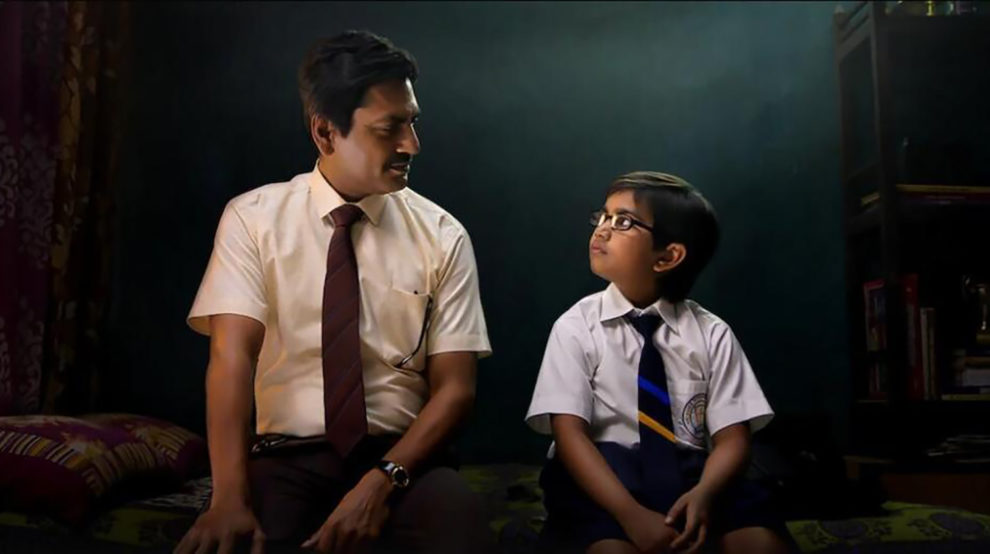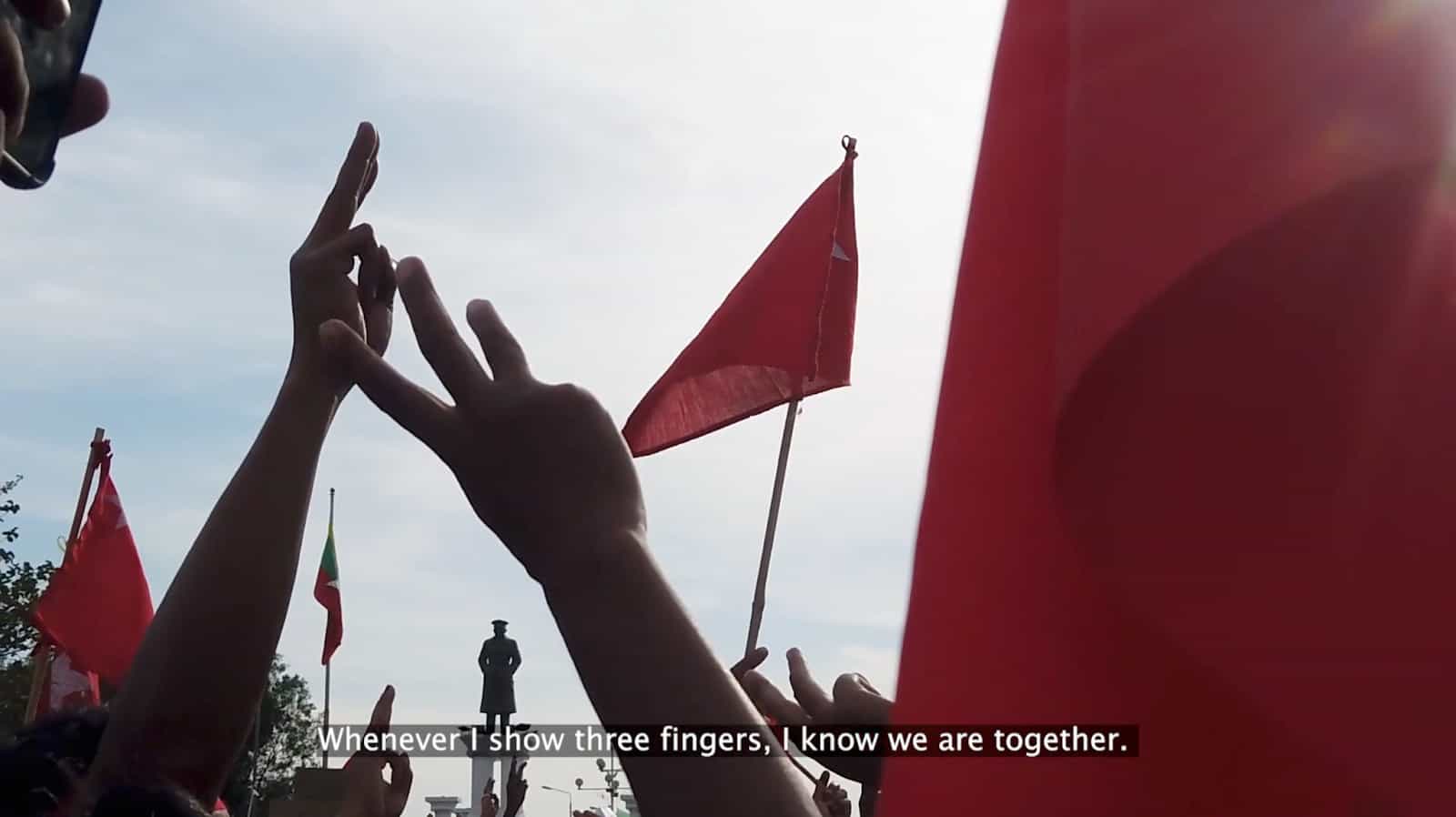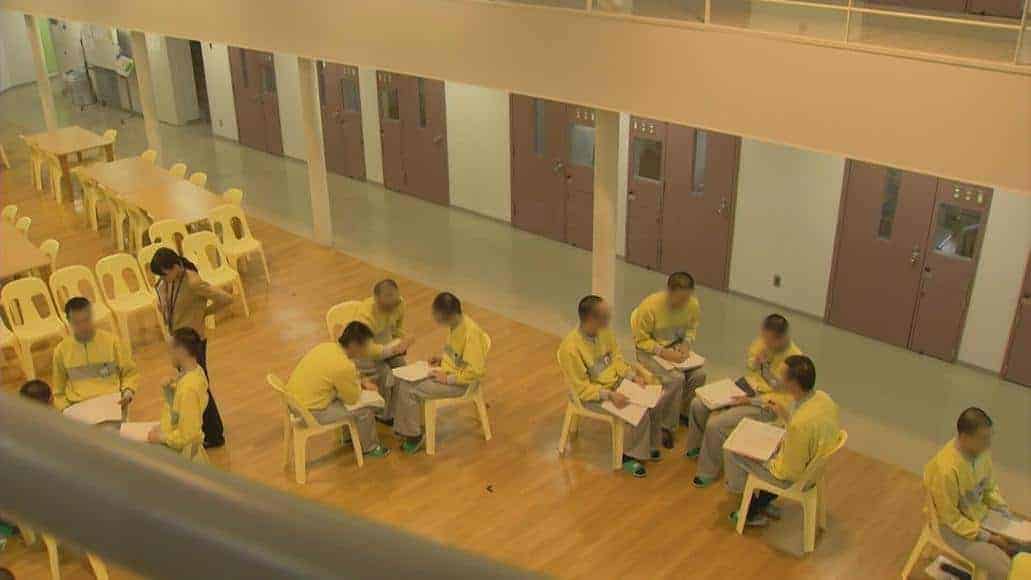A smart observation of the nuances of the Indian caste system with an ambition of universality, “Serious Men” by director Sudhir Mishra was released in Covid times and it went straight to the Netflix catalogue, as many films of 2020 did. The film is adapted from a very popular novel of the same name by Manu Joseph and is dedicated to the director's father, the late mathematician and educationist Dr. Dn Misra.
The serious men of the title are the upper-class intellectuals, as opposite to our protagonist Ayyan Mani (Nawazuddin Siddiqui), a Dalit living in Mumbai's slums with his down-to-earth wife Oja (Indira Tawari). He is an educated man though, and has a good job at the National Institute for Fundamental Research, as a personal assistant to Arvind Acharya (Nasser) a Brahmin arrogant scientist who is trying to keep funds flowing to support his wacky theory that alien microbes in the stratosphere are the source of life on planet Earth. Moron, imbecile and knobhead are only few of the names that the group of assistants are called by their arrogant boss and Ayyan, always straight-faced, sarcastically shares his contempt with his colleagues. His accumulated social anger will find a channel when his son is born. In fact, Little Adi (Aakshath Das) soon becomes his revenge by proxy. Ayyan wants the best for him, he strongly hopes Adi will cross over from G2 to the elite G4 (the generation theory he is explaining to Oja, minutes before she enters labour) and education is at the core of the class climbing. Unfortunately, Adi is a slow learner and the only thing left to do is … cheating all the way through.
Ayyan implements his deceiving plan force-feeding his son abstract and grand-sounding scientific phrases, pedantically learned concepts and theories, and – most of all – placing a receiver microphone inside Adi's hearing aid, so that he can easily whisper the right answers for any query. Adi's fame as a child prodigy spreads fast, he is called to shows and events to entertain people with his (well, not really his) quick calculations of difficult math problems, and soon becomes a sort of hero of the working class as we see him in a photoshoot, holding a board with “100% Dalit” written on it. His popularity triggers the interest of populist politicians and he is asked to become the face of a campaign for an ambitious housing project that imply the destruction of the whole neighbourhood where Adi's family lives, with the promise of a free new apartment for them. But the already snowballed lie cannot hold forever.
This witty class-critique-saturated family drama is very much grounded in the class system of India, or what it is still perceived of it. In many occasions, Ayyan refers to local recent history and social setups; the language, the meaning of speaking English or Tamil, the religion and the status of Second Generation aiming to Fourth Generation. In an amusing scene, Ayyan discusses with the administration of a sought-after Catholic school about class discrimination, provoking anxiety attacks every time he mentions the word “class” which the clerks insist that it cannot be pronounced. He then carries on comparing it to the infamous N-word, saying that it only means black, triggering panic in the middle-class school stuff. The local subtleties will be easily lost on a non-Indian audience, but the core concept is clear enough to be appreciated universally.
Interestingly, in “Serious Men” we dive into a whole universe of lies and liars. Not just Ayyan who lies to achieve social redemption through his son's success, but on the other hand, the very people he's trying to deceit are busy creating elaborated lies as a means to their own end: the scientists, the politicians, the property developers. There is a hint to be spotted in an initial scene where Ayyan sneakily changes the author name under a quote written on a white board at work; when discovered, he replies that it might not be real but it is possible. Adi's mum Oja is depicted in a rather unflattering way as a simple, slightly dumb soul, unaware all the time of Ayyan and Adi's “little secret”, and yet in the end she emerges, together with Adi, as the only honest (nevertheless scarred) souls left.
On broader level, “Serious Men” can be seen also as a sharp satire of a certain kind of parenting. The immense stress that Ayyan imposes on Adi is hard to stomach and it speaks volumes about a modern trend of short-sighted parents personally micro-managing everything about children and their environment. In a reverse Pygmalion effect, Ayyan's high expectations on Adi didn't lead to improved performance, but, on the contrary, his attempt to control the future generated a dangerous level of anxiety and the loss of the boy's self-confidence
The narration is tight and fluent for most of the (long) running time, but it seems to slightly lose the grip towards the end, almost mimicking the protagonist's ill-fated efforts to put an end to the big tangle of lies he created. All the tech credits are of excellent quality, the photography by Alexander Surkala in particular gives an extra dimension to the realism of the settings, making the film almost a 3D experience. Acting is very accurate all around but Nawazuddin Siddiqui really shines and manages with subtlety to give Ayyan many facets; he is sarcastic, funny, dark, narcissistic, evil at times, caring at others, and maintains until the very end an aura of mystery about his true soul and intent.
Despite some weakness in the second half, “Serious Men” is an entertaining darkly comic take on social struggle and a smart snapshot of India, kept together by a brilliant, histrionic performance from one of the brightest Bollywood stars.















